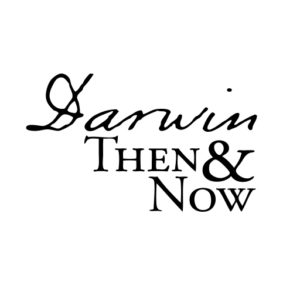 Epistemic reasoning is frequently employed in evolutionary studies. Founded on the principles of epistemology, the term originates from the Greek ἐπιστήμη (episteme, meaning knowledge or understanding) and λόγος (logos, meaning study of). In essence, epistemology refers to the study of knowledge.
Epistemic reasoning is frequently employed in evolutionary studies. Founded on the principles of epistemology, the term originates from the Greek ἐπιστήμη (episteme, meaning knowledge or understanding) and λόγος (logos, meaning study of). In essence, epistemology refers to the study of knowledge.
An important distinction between scientific and epistemological study methods is empirical observations. In scientific studies, empirical observations are the foundation, but not in epistemological studies. Epistemology manages abstractions of knowledge.
Investigative Study Methods
Epistemology offers a historical investigative study method using cross-disciplinary fields of study, like geology and biology. Within the evolution sciences, this method is used to construct historical frameworks when empirical observations are limited or impossible.
The epistemological method is a two-step process: epistemic logic and epistemic reasoning. Epistemic logic provides the framework, while epistemic reasoning interprets the framework.
In the epistemic logic process, the knowledge is defined from which a conceptual framework is developed. Interpreting and interrogating logically constructed frameworks is the epistemic reasoning process.
The methods of epistemology differ dramatically from the scientific method; epistemology operates with levels of abstraction and uncertainty. The source of epistemic uncertainties is the assumptions about the nature of the universe and life.
Epistemology is tricky, driven by assumption-based uncertainties.
Epistemic Uncertainties
Uncertainties are inevitable in epistemology since historical evidence, including fossils, isotopic ratios, and molecular sequences, is tethered to time and rate change assumptions.
These uncertainties are further compounded when integrating historical logical knowledge frameworks combined with varying reasoning processes. Geological and biological data may be tainted with circular reasoning. For example –
-
-
- Premise (Biology): Certain fossils represent organisms that once lived during a specific time period.
- Assumption (Geology): The presence of those fossils in a layer implies the layer was formed during the organism’s timeframe.
- Conclusion: Stratigraphic layers (geology) can be dated based on their observed fossil content (biology).
-
As a result,
-
-
- The fossil’s age is inferred from the layer
- The layer’s age is inferred from the fossil.
-
Logical Fallacy
While an epistemic conclusion can be logical; it can generate a logical fallacy. Examples of how evolution timeframe epistemic reasoning can result in logical fallacies, include –
-
-
- The premise of specific fossils living in a period has yet to be scientifically validated with empirical data.
- The assumption that specific fossils only lived in just one layer has yet to be scientifically validated with empirical data.
-
When uncertain knowledge is integrated into an epistemic reasoning process, the process offers potential probabilities, but not scientifically valid concepts. What separates epistemic reasoning from scientific methods is empirical evidence.
The scientific value of epistemic reasoning in reconstructing an evolutionary history of Earth’s biosphere is limited. As Yale geologist, Alec Brenner, notes in LiveScience –
“Unravelling Earth’s 4.5-billion-year history with rocks is tricky business.”
Epistemic Reasoning is a subcategory of Science Study Methods
More
Scientific methods often use different reasoning processes, including –
-
- Inductive vs. Deductive Reasoning
- Circular Reasoning
- Epistemic Reasoning (current page)
- Dating Earth Reasoning
Darwin Then and Now is an educational resource on the intersection of evolution and science, highlighting the ongoing challenges to the theory of evolution.
Move On
Explore how to understand twenty-first-century concepts of evolution further using the following links –
-
- The Understanding Evolution category showcases how varying historical study approaches to evolution have led to varying conclusions. Subcategories include –
- Studying Evolution explains how key evolution terms and concepts have changed since the 1958 publication of The Origin of Species.
- What is Science explains Charles Darwin’s approach to science and how modern science approaches can be applied for different investigative purposes.
- Evolution and Science feature study articles on how scientific evidence influences the current understanding of evolution.
- Theory and Consensus feature articles on the historical timelines of the theory and Natural Selection.
- The Biography of Charles Darwin category showcases relevant aspects of his life.
- The Glossary defines terms used in studying the theory of biological evolution.
- The Understanding Evolution category showcases how varying historical study approaches to evolution have led to varying conclusions. Subcategories include –


